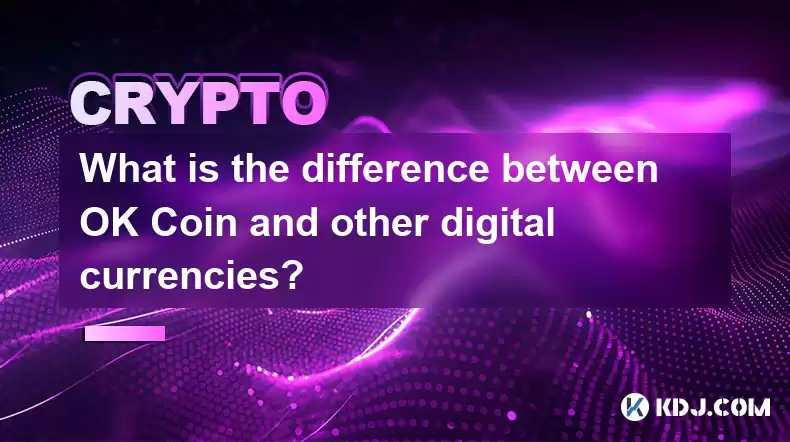-
 Bitcoin
Bitcoin $120100
1.16% -
 Ethereum
Ethereum $4329
2.25% -
 XRP
XRP $3.192
-0.22% -
 Tether USDt
Tether USDt $1.000
-0.01% -
 BNB
BNB $805.2
0.47% -
 Solana
Solana $178.7
-1.85% -
 USDC
USDC $0.9998
0.00% -
 Dogecoin
Dogecoin $0.2305
-1.62% -
 TRON
TRON $0.3445
1.17% -
 Cardano
Cardano $0.7940
-1.28% -
 Hyperliquid
Hyperliquid $44.44
-1.20% -
 Chainlink
Chainlink $21.86
-2.42% -
 Stellar
Stellar $0.4423
-0.15% -
 Sui
Sui $3.728
-3.84% -
 Bitcoin Cash
Bitcoin Cash $584.8
2.19% -
 Hedera
Hedera $0.2524
-2.87% -
 Ethena USDe
Ethena USDe $1.001
-0.02% -
 Avalanche
Avalanche $23.66
-0.78% -
 Litecoin
Litecoin $124.5
0.39% -
 Toncoin
Toncoin $3.399
1.77% -
 UNUS SED LEO
UNUS SED LEO $9.002
-0.44% -
 Shiba Inu
Shiba Inu $0.00001327
-2.10% -
 Uniswap
Uniswap $11.42
2.58% -
 Polkadot
Polkadot $3.957
-2.50% -
 Cronos
Cronos $0.1696
4.50% -
 Dai
Dai $1.000
0.00% -
 Ethena
Ethena $0.8139
3.04% -
 Bitget Token
Bitget Token $4.442
-0.38% -
 Monero
Monero $271.2
2.93% -
 Pepe
Pepe $0.00001168
-2.91%
What is the difference between OK Coin and other digital currencies?
OKCoin distinguishes itself from other exchanges by offering derivatives trading, staking, and lending, alongside spot trading, and prioritizing regulatory compliance in major markets, impacting its fees, available cryptocurrencies, and user experience.
Mar 12, 2025 at 01:35 pm

Key Points:
- OKCoin's primary distinction lies in its multifaceted nature as a cryptocurrency exchange, offering a range of services beyond simple trading.
- Unlike many purely exchange-focused platforms, OKCoin delves into areas like derivatives trading, staking, and lending.
- Its regulatory compliance efforts, particularly in jurisdictions like the US and UK, differentiate it from some less regulated competitors.
- OKCoin's fee structure, trading volume, and available cryptocurrencies vary compared to other exchanges, influencing user choice.
- The platform's user interface and available tools differ, affecting the overall trading experience.
What is the difference between OKCoin and other digital currencies? This question is slightly misleading. OKCoin isn't a digital currency itself; it's a cryptocurrency exchange. The question should be reframed as: "What differentiates OKCoin from other cryptocurrency exchanges?" The answer lies in several key aspects.
Firstly, OKCoin isn't just a simple platform for buying and selling cryptocurrencies. While that is a core function, it extends into other financial products. Many exchanges focus solely on spot trading. OKCoin, however, offers derivatives trading, allowing users to engage in more complex strategies like futures and options contracts. This significantly broadens its appeal to experienced traders.
Secondly, OKCoin actively pursues regulatory compliance in various jurisdictions. This is a significant difference from some exchanges that operate in less regulated environments. Operating in regulated markets like the US and UK requires adhering to stringent Know Your Customer (KYC) and Anti-Money Laundering (AML) procedures. While this might be a barrier for some users seeking anonymity, it provides a layer of security and trust for others.
Thirdly, the specific cryptocurrencies available on OKCoin vary from other exchanges. While most major cryptocurrencies are usually present, the selection might differ in terms of less-established altcoins or niche tokens. The availability of these assets influences the overall trading options for users. It's crucial to check the available assets before choosing a platform.
Another key difference is the fee structure. OKCoin's fees for trading, withdrawals, and deposits will vary from other exchanges. These fees can significantly impact profitability, especially for high-volume traders. A detailed comparison of fee schedules across different platforms is necessary before committing to any exchange. Moreover, OKCoin's trading volume differs from other platforms, impacting liquidity and the potential for slippage. Higher trading volumes usually imply better liquidity, but this isn't always the case.
The user interface and overall trading experience also represent a significant differentiator. Each exchange offers a unique design and functionality. OKCoin's platform might be more user-friendly for some, while others might prefer the interfaces of competitors. The availability of advanced charting tools, order types, and educational resources varies greatly between platforms. The best exchange often depends on individual preferences and trading styles.
The security measures implemented by OKCoin also set it apart. Like all exchanges, security is paramount. OKCoin utilizes various measures to protect user funds, including cold storage, two-factor authentication, and potentially other security protocols. However, a thorough comparison of security features across different platforms is necessary to make an informed decision. It's crucial to research each exchange's security track record before depositing funds.
Finally, OKCoin offers services like staking and lending, further differentiating it from simpler exchanges. Staking allows users to earn passive income by locking up their cryptocurrencies to support the network's security. Lending provides opportunities to earn interest on deposited cryptocurrencies. These services aren't available on all platforms, providing OKCoin with a competitive edge for users interested in these options.
Frequently Asked Questions:
Q: Is OKCoin safe?
A: Like any cryptocurrency exchange, OKCoin carries inherent risks. However, its pursuit of regulatory compliance and implementation of security measures aim to mitigate these risks. Users should still conduct thorough due diligence and practice good security habits, including using strong passwords and two-factor authentication.
Q: How do OKCoin's fees compare to other exchanges?
A: OKCoin's fee structure varies depending on the trading pair, trading volume, and the type of trade (spot, futures, etc.). Direct comparison with other exchanges requires checking each platform's fee schedule, as they frequently change. It’s essential to consider all fees, including deposit and withdrawal fees, when evaluating cost-effectiveness.
Q: What cryptocurrencies are available on OKCoin?
A: OKCoin supports a range of cryptocurrencies, including major ones like Bitcoin and Ethereum, as well as various altcoins. However, the exact selection changes over time. It's best to check the official OKCoin website for the most up-to-date list of supported cryptocurrencies.
Q: Is OKCoin regulated?
A: OKCoin actively seeks regulatory compliance in various jurisdictions. The extent of regulation varies by location. Check OKCoin's official website for details on its regulatory status in your region. Remember that regulation doesn't guarantee complete safety but does add a layer of security and accountability.
Q: What are the advantages of using OKCoin over other exchanges?
A: OKCoin's advantages include its range of services (spot trading, derivatives, staking, lending), its pursuit of regulatory compliance in key markets, and its relatively established presence in the industry. However, the "best" exchange depends on individual needs and preferences, including fee structure, supported cryptocurrencies, and user interface.
Disclaimer:info@kdj.com
The information provided is not trading advice. kdj.com does not assume any responsibility for any investments made based on the information provided in this article. Cryptocurrencies are highly volatile and it is highly recommended that you invest with caution after thorough research!
If you believe that the content used on this website infringes your copyright, please contact us immediately (info@kdj.com) and we will delete it promptly.
- Bitcoin, Solana, MAGACOIN FINANCE: Navigating the 2025 Crypto Landscape
- 2025-08-12 00:30:13
- Cardano, ADA Holders, and Layer Brett: A Meme Coin with Real Utility?
- 2025-08-12 00:50:12
- Bitcoin, Michael Saylor, and Savvy Investors: A New Era of Digital Assets
- 2025-08-12 00:30:13
- Crypto Presales in 2025: Spotting the Next Big Thing with Analyst Insights
- 2025-08-12 00:50:12
- Cloud Mining in 2025: Bitcoin, Litecoin, and the Quest for Passive Income
- 2025-08-12 00:55:32
- Token Security, Agentic AI, Cybersecurity Guide: Navigating the New Frontier
- 2025-08-11 23:00:12
Related knowledge

How to purchase Aragon (ANT)?
Aug 09,2025 at 11:56pm
Understanding Aragon (ANT) and Its PurposeAragon (ANT) is a decentralized governance token that powers the Aragon Network, a platform built on the Eth...

Where to trade Band Protocol (BAND)?
Aug 10,2025 at 11:36pm
Understanding the Role of Private Keys in Cryptocurrency WalletsIn the world of cryptocurrency, a private key is one of the most critical components o...

What is the most secure way to buy Ocean Protocol (OCEAN)?
Aug 10,2025 at 01:01pm
Understanding Ocean Protocol (OCEAN) and Its EcosystemOcean Protocol (OCEAN) is a decentralized data exchange platform built on blockchain technology,...

Where can I buy UMA (UMA)?
Aug 07,2025 at 06:42pm
Understanding UMA and Its Role in Decentralized FinanceUMA (Universal Market Access) is an Ethereum-based decentralized finance (DeFi) protocol design...

How to buy Storj (STORJ) tokens?
Aug 09,2025 at 07:28am
Understanding Storj (STORJ) and Its Role in Decentralized StorageStorj is a decentralized cloud storage platform that leverages blockchain technology ...

Where to find the best price for Audius (AUDIO)?
Aug 11,2025 at 04:01pm
Understanding the Basics of Ethereum StakingEthereum staking refers to the process of locking up ETH tokens to support the security and operations of ...

How to purchase Aragon (ANT)?
Aug 09,2025 at 11:56pm
Understanding Aragon (ANT) and Its PurposeAragon (ANT) is a decentralized governance token that powers the Aragon Network, a platform built on the Eth...

Where to trade Band Protocol (BAND)?
Aug 10,2025 at 11:36pm
Understanding the Role of Private Keys in Cryptocurrency WalletsIn the world of cryptocurrency, a private key is one of the most critical components o...

What is the most secure way to buy Ocean Protocol (OCEAN)?
Aug 10,2025 at 01:01pm
Understanding Ocean Protocol (OCEAN) and Its EcosystemOcean Protocol (OCEAN) is a decentralized data exchange platform built on blockchain technology,...

Where can I buy UMA (UMA)?
Aug 07,2025 at 06:42pm
Understanding UMA and Its Role in Decentralized FinanceUMA (Universal Market Access) is an Ethereum-based decentralized finance (DeFi) protocol design...

How to buy Storj (STORJ) tokens?
Aug 09,2025 at 07:28am
Understanding Storj (STORJ) and Its Role in Decentralized StorageStorj is a decentralized cloud storage platform that leverages blockchain technology ...

Where to find the best price for Audius (AUDIO)?
Aug 11,2025 at 04:01pm
Understanding the Basics of Ethereum StakingEthereum staking refers to the process of locking up ETH tokens to support the security and operations of ...
See all articles

























































































